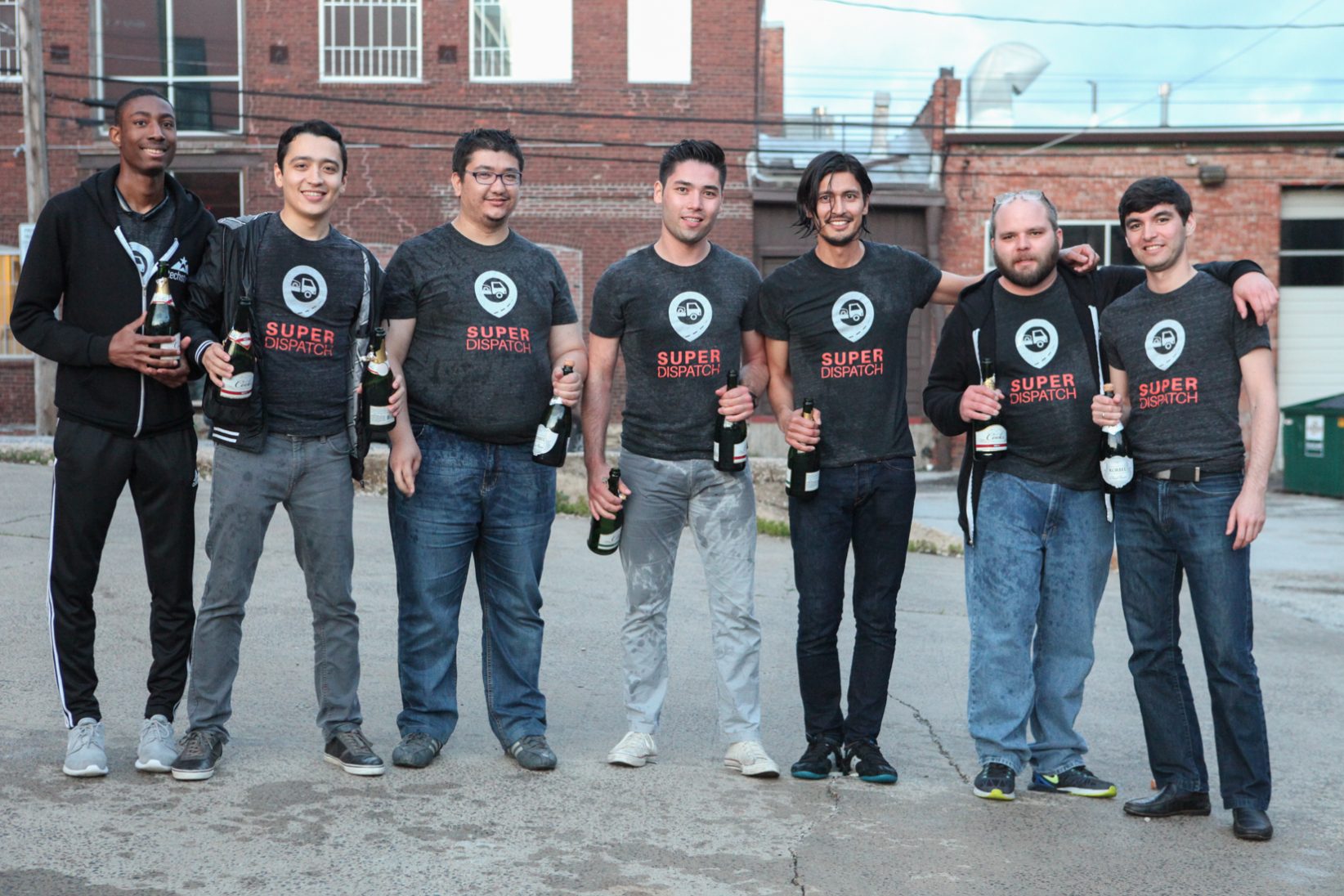Editor’s note: This content is sponsored by LaunchKC but independently produced by Startland News.
Technological advancements are bringing significant change to nearly all industries — and trucking is no different.
Autonomous vehicles, machine learning and the Internet of Things are just a few of the trends on which Super Dispatch founder Bek Abdullayev has his eye.
In 2013, Abdullayev founded Super Dispatch, a software-as-a-service platform for the trucking industry intended to eliminate paperwork. Super Dispatch streamlines the communication of documents between truckers and their back offices, protects users against false damage claims and scans VIN barcodes for car haulers via a web- and mobile-based app.
Startland News sat down with Abdullayev to get his take on the future of Super Dispatch and to learn how his business is trucking along.
What are the implications of autonomous vehicle technology for Super Dispatch?
We’re really excited about autonomous trucks. I think the acceleration of autonomous vehicles gives Super Dispatch an opportunity for our software component to begin interacting with hardware components. It gives our customers more control over how they manage their fleets.
What other trends are you paying attention to?
We pay attention to overall technology trends, and autonomous vehicles is a big one. So is moving beyond mobile. Mobile has been a hot trend for the past 10 years but now things are moving toward the Internet of Things — mobile devices and software will now be connected to your surroundings. We don’t want trucking to get stuck in the 1900s again. I envision in the near future for our customers to not only be interacting through mobile devices and computers but also through voice recognition technology. We’d like to connect mobile apps directly to the trucks so drivers know exactly what’s going on.
As someone who moved from Uzbekistan to Kansas in 2001, what would you say to lawmakers that are considering bills for immigration?
I feel hopeful and optimistic about this new entrepreneurial visa program. It opens a new gateway of opportunity for us to be able to recruit talent globally and for more entrepreneurs to come into our ecosystem. I think it’s clear that immigrants that engage in entrepreneurship have had a positive impact.
What’s it like doing business in the Midwest?
Although we are officed out of Sprint Accelerator, we are technically a Kansas company. I’ve been greatly disappointed in Kansas and am actually contemplating moving back to Missouri. We opened our business in Kansas to take advantage of the angel tax credits, but then this year alone they tried to take that away. Overall I don’t believe the environment to be that friendly to entrepreneurs. In 2016, we’ve seen a lot more positive signs from the Missouri side that support entrepreneurship for early stage technology companies.
What’s the year ahead look like for Super Dispatch?
2016 was an amazing year for us and I suspect 2017 will be a lot better and bigger. We grew ten times more in 2016 than we did in 2015, and we’re trying to replicate that growth again next year. I’m extremely excited about being able to work with exciting technology like machine learning, autonomous trucks and Internet of Things.
What does the LaunchKC win mean to your firm?
We’re looking to use LaunchKC to expand in two areas. One is to start offering Super Dispatch to companies outside of vehicle shipping and expand specialized freight — such as animals, heavy machinery and farm equipment. Two, within vehicle shipping we’ve started talking to more companies like Ford and GM to allow these companies to gain visibility on what happens after the car sale. We’re looking to start working with companies that make cars to let them use Super Dispatch so they could interact with the data, and the grant money is going to help us do that.
If you weren’t in the tech field, what would you be doing?
I’d be tinkering with something. I’m always tinkering and poking things and trying to break things, thinking maybe I could still turn them into something else and grow them. I think I have a natural tendency to seek out inefficiencies. This is a good thing and a bad. With my marriage, it’s not always the best thing to keep providing feedback to my wife. I always just want things to be better, and it’s not always well received.






































